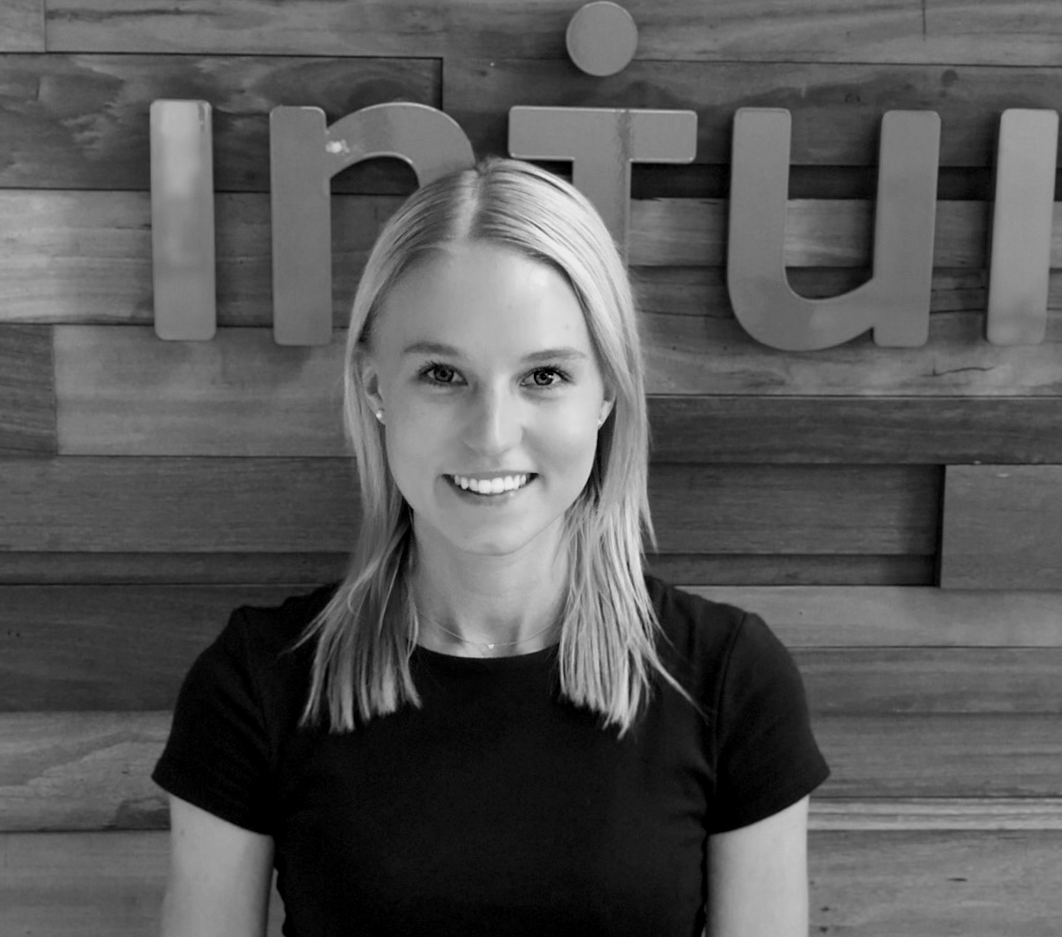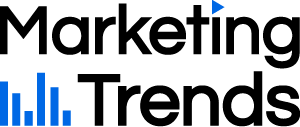Adriana Jennings

At Marketing Trends we are discovering what drives Australia’s top marketers. Adriana Jennings has 8+ years experience in marketing and tech. In this interview, she tells us why data remains the biggest asset in tech and how she saw QuickBooks play a key role for SMEs during the pandemic.
Career & professional background
Adriana, what made you choose the marketing career path?
I started my career in PR and social media marketing. During this time I studied a Bachelor of Marketing and Media at Macquarie University, where I enjoyed the blend of business and arts. It confirmed it was the right career path for me.
My big takeoff career moment was when I was accepted into Optus’ Marketing Graduate Program, which allowed me to rotate between different teams for 2 years. I worked and thrived in various digital, customer, brand and product marketing roles. Eventually I moved on and have now been part of the Intuit Australia marketing team for over 2 years.
And if you weren't a marketer, what else would you be doing? What other passions do you have?
I have a side hustle! I create editorial content and photography for my travel and fashion blog, Golden Hour Girl. So, I think if I wasn't in marketing, I'd be doing something centred around that. My original dream was to be the editor of a fashion and travel magazine. Obviously, that industry has completely changed now, but who knows where I’ll land in the future. Currently I'm in tech and love it.
Marketing & Industry Trends
Could you tell us about Intuit´s marketing team and your role in the company?
I see marketing as the centrepiece of what we do at Intuit. There’s a big focus on a customer-led strategy and execution of the business plans to grow awareness of our product to service customer’s needs.
My role at Intuit is focused on acquisition marketing, growing our base of small businesses and I'm part of the go-to-market team. There's a lot of collaboration between us and the US teams. We liaise with small businesses owners and accountants to understand their needs and how we can assure our product helps them.
Being a global company, is the marketing strategy international or is it 100% decided at HQ in the US?
People are always surprised when I tell them how big the Intuit Australian marketing team is. We have plenty of autonomy and decision-making power here, but we still leverage work from the US. I work closely with the US and Global teams to learn new ideas, access resources and share knowledge.
That attracted me from the beginning, because we get the best from being a global business, yet still able to ensure what we're doing fits the Australian market. It's not a copy and paste of what's happening in the other global regions - localisation is important for me and my work.
Having a big marketing team, do you work with agencies as well or do everything in-house?
It's a mix. We do have several in-house resources: a design team called XD, product managers, analytics and data specialists. We also work with research, creative strategy or production agencies on a project basis. It depends on the brief and who's best suited to deliver on it.
How did Intuit adapt to COVID- 19 and the “new normal”?
In March, we started working remotely full-time and nowadays the company is rolling out a hybrid workforce which I’m excited about. In the future the plan is to go into the office for highly collaborative team days, otherwise we can balance working from home.
I feel very lucky that I'm in an organisation that sells a cloud technology product. It’s an industry that's booming. I saw Intuit innovate fast during COVID-19 and adapt to what was happening for our customers. Throughout the pandemic, I saw how reliant small businesses and accountants were on QuickBooks. For example, when the Australian government rolled out JobKeeper, small businesses could use QuickBooks to access those JobKeeper payments.
What's the most important trend happening in your field in terms of marketing?
Given that I’m in the SaaS tech product space, data is a big one. A lot of the projects that I've been working on have been around AI and machine learning. It was also a buzzword when I was at Optus, because it's all about having more access and better control of your data.
For example, we just launched an updated Cash Flow planner tool within QuickBooks that allows customers to predict trends or forecasts based on their historical finances. All of this based on AI around data. It's exciting to see how that will help and empower businesses.
And challenges for the industry?
I would say related to that trend, its data privacy and cyber security. I saw this become a hot topic last year for TikTok, Facebook and WhatsApp. Working in cloud technology, cyber security is of the utmost importance. It’s the core of the product I do the marketing for; people need to know that their data is safe and secure - especially when it comes to their finances.
Another challenge is around compliance and legislation and ensuring products and messaging adhere to new Government regulation and policy.
Tools, recommendations & sources of inspiration
What does a typical day look like for you? How do you structure your weeks?
Marketing is a dynamic & collaborative area. Working from home the majority of last year changed a lot of things - it took me a while to get into a rhythm. I’ve found it helpful working in two-week sprints: Picking the top three most important projects and focusing on those. I also have handwritten to-do lists with achievable daily goals.
In marketing, there is a lot of balancing needed. I try to get my meetings and collaboration updates done in the morning. Then in the afternoons, have blocks of hours when I turn off my phone and alerts and focus on getting work done.
And which softwares do you use at Intuit? To organise your days and work collaboratively.
The one I use the most is Wrike, which is for project management and collaboration. We have different Wrike boards where we input briefs for different teams, whether it's an analytics or design request. It’s all in one place, and we're able to get status updates, access documents and see how different projects are tracking.
I would say Wrike is a key one for me as a marketer, especially running so many go-to- market programs. As is Airtable.
What type of brands and companies inspire you? Not only to work in Intuit but also for your fashion and travel blog?
A big source of inspiration for me is not necessarily a brand, but a platform - LinkedIn. I love hearing about different companies, people's success stories & how they're innovating. I find that there's a lot of valuable information on LinkedIn on a daily basis.
I think the big global tech companies such as Google, Amazon and Tesla are amazing. However, I'm a big fan of Australian start-ups. One that I admire and actually got to meet the CEO’s, is SWEAT, the fitness app by Kayla Itsines and Tobi Pearce. Recently, they adapted their product to people’s workout needs during the lockdown - I love seeing their constant innovation.
What about personal recommendations? Any books or tools?
Two books deeply impacted me last year. The first one is Atomic Habits by James Clear. It’s centred around how you can train your mind to do simple things that are easy/accessible/obvious and how they can have an atomic impact.
The second one was a beautiful book written by Melinda Gates called The Moment of Lift: How Empowering Women Changes The World. I didn't know much about Microsoft and Melinda and Bill Gates. It was inspiring to learn their story, their foundation and their social impact work over the years. Other learning tools I would recommend are LinkedIn Learning and Degreed: The Upskilling Platform. These platforms aggregate different resources such as from Medium and Business Insider as well as YouTube videos and TED Talks. They give you access to excellent content all in one place.


